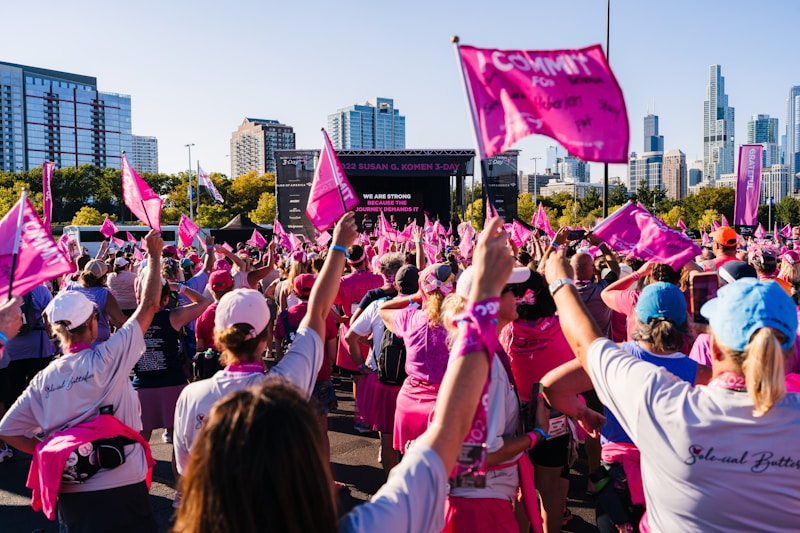What is Breast Cancer?
Breast cancer is a type of cancer that develops in the breast tissue, usually in the milk ducts or lobules. It occurs when abnormal cells grow uncontrollably, forming a tumor that can spread to other parts of the body.
Key Facts
✅ Most common cancer in women worldwide
✅ Can also occur in men (though rare)
✅ Early detection increases survival rates
✅ Genetic & lifestyle factors influence risk

Causes and Risk Factors
While the exact cause of breast cancer remains unknown, certain factors increase the risk.
1. Genetic Factors
- Family history of breast cancer
- Mutations in BRCA1 & BRCA2 genes
2. Hormonal Factors
- High levels of estrogen and progesterone
- Early menstruation (before 12) or late menopause (after 55)
3. Lifestyle Factors
- Smoking & alcohol consumption
- Obesity and lack of exercise
- Use of hormone replacement therapy (HRT)
4. Environmental Factors
- Exposure to radiation or toxic chemicals
Common Symptoms
| Symptom | Description |
|---|---|
| Lump in the breast | Hard, painless mass in breast or underarm |
| Changes in breast size/shape | Unusual swelling or shrinkage |
| Nipple discharge | Blood or clear fluid leaking from the nipple |
| Skin dimpling | Orange peel-like texture on the breast |
| Pain in the breast | Unexplained, persistent breast pain |
| Redness/swelling | Signs of inflammatory breast cancer |
🔔 Important: Not all lumps are cancerous, but any unusual changes should be checked by a doctor!
Stages
| Stage | Description |
|---|---|
| Stage 0 | Non-invasive, abnormal cells in ducts (DCIS) |
| Stage 1 | Small tumor (≤2 cm), no lymph node involvement |
| Stage 2 | Tumor 2–5 cm or spread to nearby lymph nodes |
| Stage 3 | Large tumor or extensive lymph node involvement |
| Stage 4 | Metastatic cancer (spread to other organs) |
Treatment Options
1. Surgery
- Lumpectomy – Removes only the tumor
- Mastectomy – Removes one or both breasts
2. Radiation Therapy
- Uses high-energy rays to destroy cancer cells
- Reduces recurrence risk after surgery
3. Chemotherapy
- Drugs kill cancer cells throughout the body
- Used before or after surgery
4. Hormone Therapy
- Blocks estrogen & progesterone that fuel cancer growth
- Effective for hormone receptor-positive breast cancer
5. Targeted Therapy
- HER2-positive cancers respond to drugs like Herceptin
👩⚕️ Treatment depends on cancer type, stage & overall health
Lifestyle Changes for Patients
- Healthy diet rich in fruits, vegetables & lean protein
- Regular exercise (helps with recovery & reduces fatigue)
- Stress management (yoga, meditation, counseling)
- Avoid alcohol & smoking to lower recurrence risk
Prevention Tips
✅ Maintain a healthy weight
✅ Exercise regularly (at least 30 mins/day)
✅ Limit alcohol & quit smoking
✅ Get regular screenings (especially if high risk)
✅ Breastfeed if possible (reduces risk in women)
🔍 Early detection through mammograms saves lives!
FAQs About Breast Cancer
1. Can men get breast cancer?
Yes, but it is rare. Less than 1% of all breast cancer cases occur in men.
2. What age should women start getting mammograms?
Women 40+ should get yearly mammograms or earlier if they have a family history.
3. Is breast cancer hereditary?
Yes, BRCA1 & BRCA2 gene mutations increase the risk.
4. Does wearing a bra cause breast cancer?
No, there is no scientific evidence linking bras to cancer.
5. Can breast cancer be completely cured?
If detected early (Stage 0–1), survival rates exceed 90%.
Conclusion
Breast cancer is a serious but treatable disease when detected early. Regular screenings, healthy lifestyle choices, and early medical intervention can significantly improve outcomes. Whether you are at risk or looking for prevention tips, staying informed is the first step in the fight against breast cancer.
💗 Take charge of your health – schedule a mammogram today!
Would you like more insights on specific treatment advancements or natural remedies? Let me know how I can refine this further! 🚀
